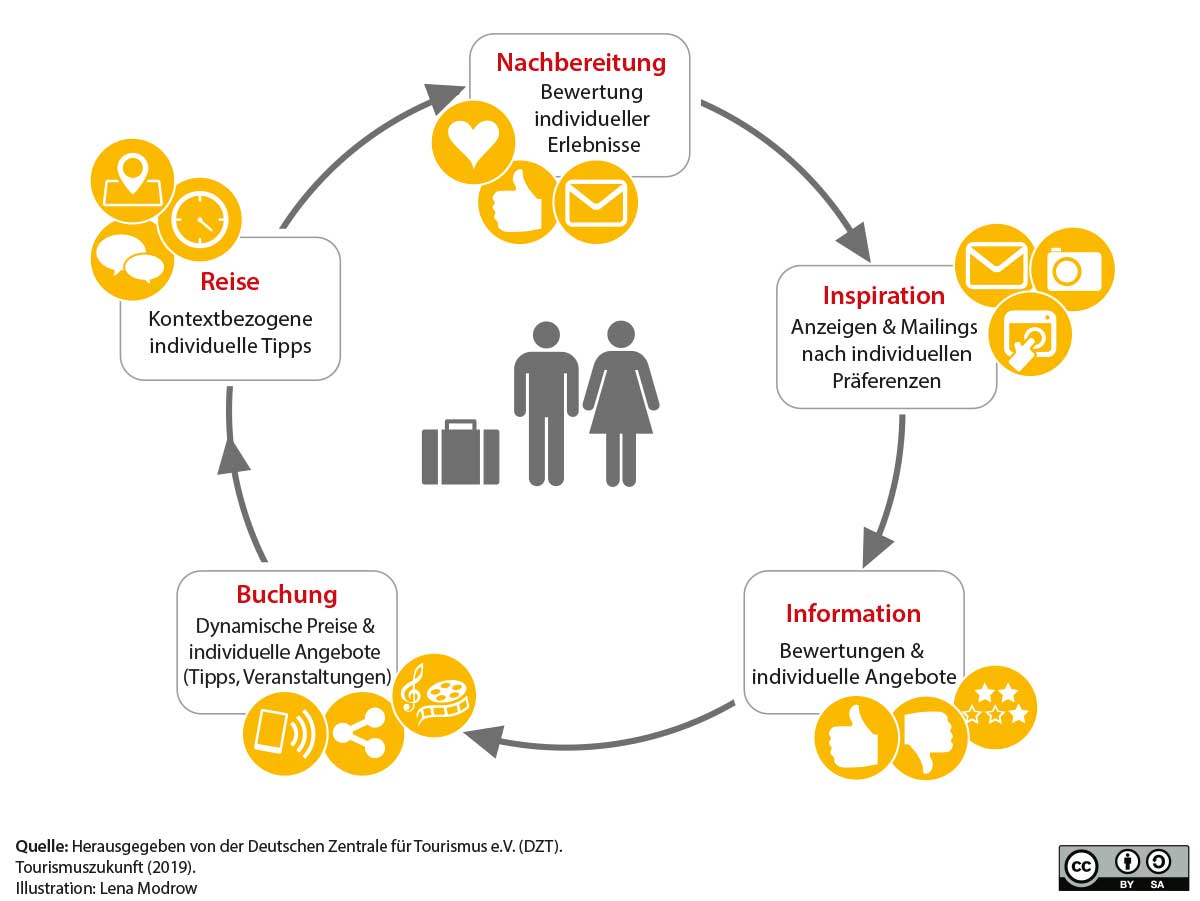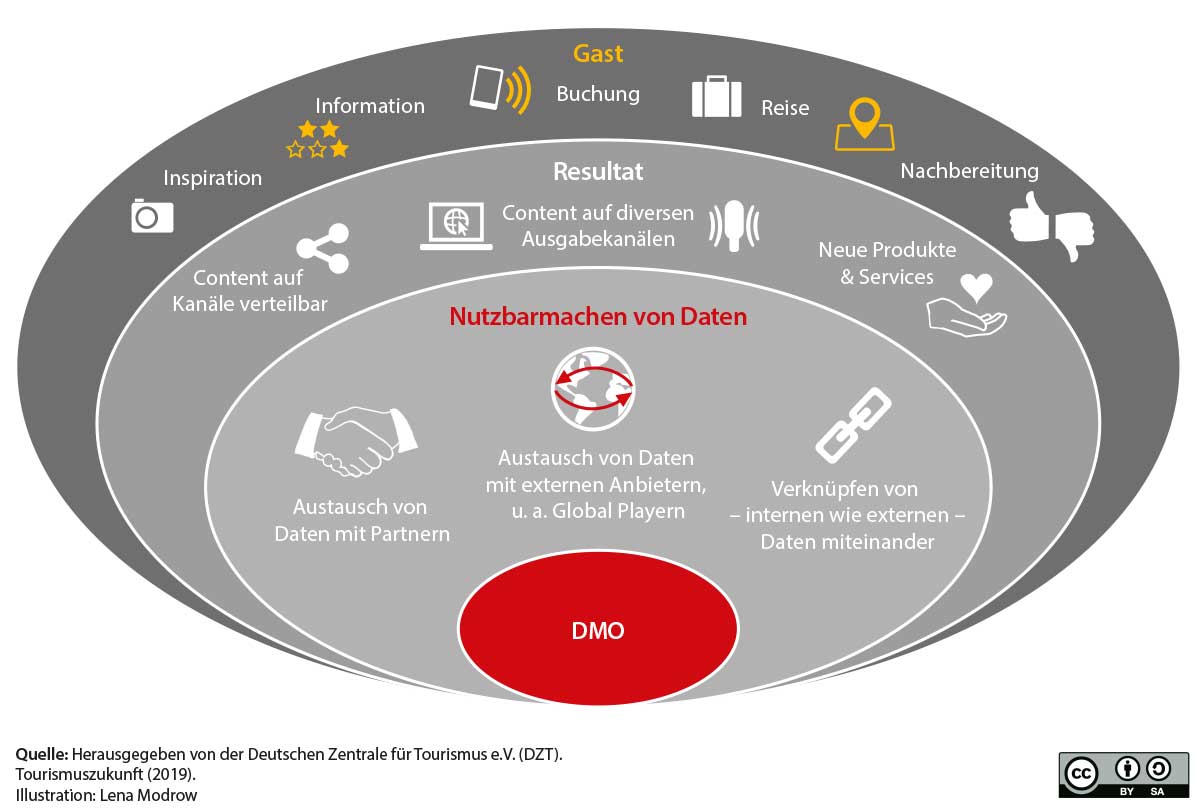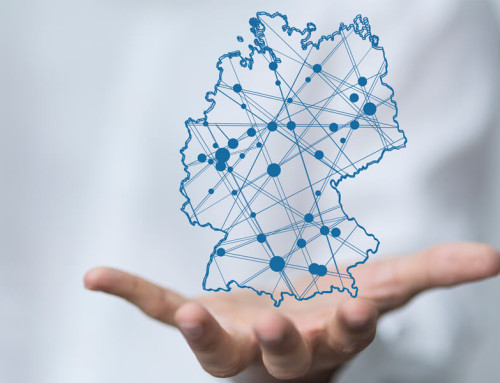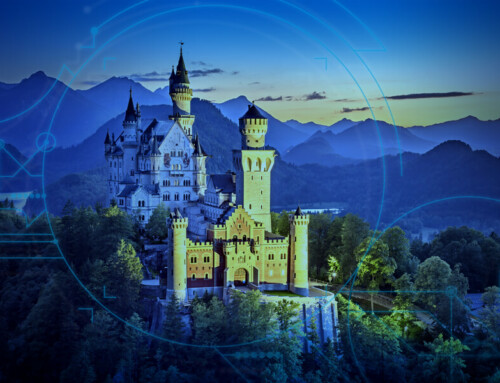And why “(Open) Data” is needed for this.
The Influence of Digitalisation on the Tasks of a DMO
The abbreviation DMO once stood for Destination Marketing Organisation. The DMO concentrated on marketing the region by means of classic “push” advertising campaigns – print, radio, out-of-home, online marketing as well as press activities – in order to convince potential guests of its own region. As there were few alternative information providers, the DMO was able to control the image of the region well.
In the meantime, the majority of DMOs are defined as destination management organisations – a consequence of digitalisation and the associated changes in the tasks of a DMO.
Facebook was founded in 2004. The first iPhone appeared in 2007. Since 2014, movies can be watched in Germany via the streaming service Netflix. The game Pokémon Go send people into the streets in 2016. In the same year, the voice-based assistant Amazon Echo, better known as Alexa, appeared in Germany. Since 2018, it has been possible to make cashless and contactless payments in stores using your own smartphone via NFC (near field communication) technology, and e-scooters have been available for use in many cities since 2019. All of this is digitisation. And all of this has consequences. Also for tourism.
Guests come into contact with data throughout their entire customer journey – but hardly ever on the DMO’s channels. The customer journey graphic shows that guests already come into contact with data on various channels throughout their entire journey.
DMOs are also increasingly trying to accompany guests throughout their entire customer journey, but this requires the appropriate data. Thus, the DMO must offer customers creative products and services for which the customer is willing to disclose his personal data in return. In order to design these products and services, the DMO in turn needs the data from the region of POIs, events, visitor flows, etc. Currently, mostly guest cards or corresponding apps form this interface between customer data and destination data.
The new tasks of a DMO
In order to keep pace with digitalisation, the DMO must set an example of leadership in digital topics to the players in the region. The same applies to the management level of the DMO towards its own team. This requires a fundamentally open attitude that reacts positively to new developments and is curious about them. The results of digital developments are not always predictable, which is why trust in one’s own team and an open culture of failure are also fundamental.
The DMO must ensure that appropriate and correct information is available on all channels and that it can be used by the various platforms as well as the (tourist) stakeholders in the region. Instead of marketing on its own channels, the DMO thus becomes the curator and distributor of existing content as well as the person responsible for quality assurance.
Knowledge of new trends and developments, as well as the requirements for collecting and maintaining data, must be shared within the region. The DMO is therefore increasingly responsible for the “digital” training of (tourism) service providers. The aim is to impart both general knowledge and practical application. Networks and joint offers with organisations such as DEHOGA, the IHKs etc. are necessary in order to be able to offer on-site workshops and individual coaching, as well as location-independent webinars or e-learning offers.
However, it is not only about continuing education in terms of trends and current developments. As product quality becomes more critical and transparent, the DMO needs to help service providers create high-quality experiences on the ground. By means of data, it is then a matter of linking suitable offers with each other and directing visitors accordingly. This requires live data on numbers of visitors and visitor flows, which provide information on the capacity utilisation of the establishments. The DMO should support the service providers in generating the data as well as monitoring and adding value to it.
“Open Data” supports the DMO in its new tasks
How data ends up with the guest.
Looking at the extensive importance of data to the work of a DMO in the context of emerging digitalisation, it becomes clear that the DMO is moving towards becoming a data management organisation. Accordingly, the DMO must accept the tasks associated with this topic for itself and create the necessary conditions for it: Knowledge is the most important aspect along with digital value chain determining the (digital) success of a destination in the future.
Kristine Honig
Realizing Progress
Kristine Honig is a consultant and network partner at Realizing Progress (formerly Tourism Future). She advises and supports tourism companies with their strategy, storytelling and the organisation of barcamps.
More about the person at: https://www.realizingprogress.com/kristine-honig















